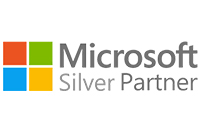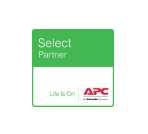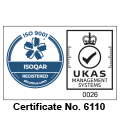Genomic Research Project
- Government’s flagship Genome Project will sequence 100,000 genomes by 2017
- Genomic sequencing unlocks DNA data and may assist treatment of life-threatening diseases
- Pressure on IT infrastructure to process, analyse and store genomic data
- King of Servers supplied IT hardware for innovative cancer research project
A strong relationship between science and technology has long since existed and, as expertise within both fields continues to develop at its fastest rate yet, this bond is growing ever closer. Medical research is increasingly reliant on the backing of secure and reliable IT infrastructure, which is set to become even more important as investment in genomic sequencing rises. The government had pledged to sequence 100,000 whole genomes by 2017 and many other research bodies ahave progressed similar projects on a smaller scale. Technology provider Evaris has witnessed this first-hand through a partnership with Dr Shahid Mian, who has partnered with the Universities of Cambridge and Nottingham to research breast cancer and lymphoma, using innovative genomic sequencing to analyse the genetic profile of patients.
What is genomic research?
Full genomic sequencing is the process of determining the order of every element of DNA within a person. There are over 3 billion of these genetic letters in a human genome; each of these is read, recorded and then put into the right order to create an entire sequence. This process can be repeated any number of times, offering a comparison from the initial base point to illustrate genetic changes within a person during a specific period of time. Dr Mian and his team are using the findings of genomic sequencing to monitor genetic changes among cancer patients, which is helping to shed new light on the disease. The implications of such research is vast; it could reveal the effectiveness of different treatments, as well as showing patterns in how the body responds to the disease among different people according to their gene type.
The role of technology
Fully sequencing a person’s entire genome takes approximately 36-72 hours and creates a vast pool of raw data. This must then be analysed so that variants can be identified and conclusions can be drawn from the patterns. Doing so uses multiple terabytes of data and this rises exponentially as the process is repeated for improved reliability the storage required multiplies. Putting the ethical and practical considerations aside, babies could be sequenced from birth to monitor genetic changes over a lifetime. If the cost of genomic medicine continues to decline and research increases, medics could place patients on a preventative course of action determined according to their genetic format. The amount of data this would create is incomprehensibly vast and strong infrastructure will be crucial to the progression of genomic research.
A secure solution
Researchers have considered cloud technology for storage, but due to the confidential nature of medical records, there are concerns over the security element. Portable hard drives are a valid alternative for temporary storage, but the long-term solution that many research teams are investing in is an on-site server to process, record and store scientific findings.
Evaris provided Dr Mian with a high performance server equipped with numerous processing cores for rapid, intensive data processing with 1.2 Tb of data storage. As well as enabling the research team to continue with ongoing research and analysis, the server allows for storage of ‘cold data’; records of previous sequencing that can be accessed months or years ahead. The team can conduct rapid sequence alignment thanks to the powerful processors within the server and explore the relevance of every change in DNA to understand its implication. If such research is able to continue, it could contribute towards the trend for personalised medicine and result in more effective healthcare as a whole.
To find out more about Dr Shahid's work please visit http://www.mdptu.org







